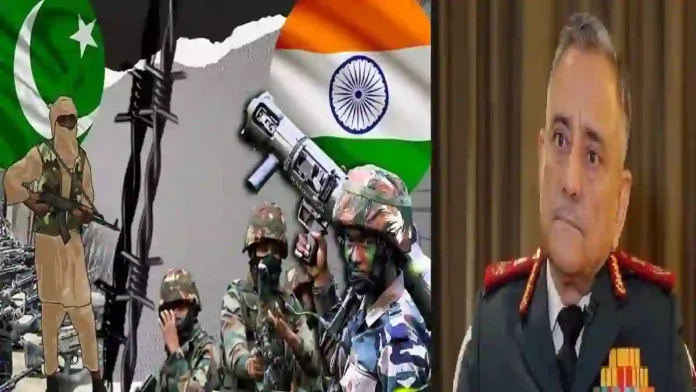Chief of Defence Staff General Anil Chauhan has articulated India’s perspective on Pakistan’s enduring hostility, rooted in what he describes as the doctrine of a “thousand-year war” against India.
This ideology was first publicly declared by Zulfikar Ali Bhutto, Pakistan’s former Prime Minister and President, during a 1965 speech to the United Nations Security Council, in which he vowed to wage a prolonged, relentless conflict against India.
Chauhan emphasized that the current rhetoric and actions of Pakistan’s military leadership, particularly Army Chief General Asim Munir, echo this longstanding posture, reinforcing a cycle of animosity and aggression.
The immediate context for Chauhan’s remarks was the recent terror attack in Pahalgam, where 26 civilians were brutally killed in what he described as “profound cruelty”—executed with headshots in front of their families in the name of religion. The massacre, according to Chauhan, was not an isolated incident but part of a pattern of state-sponsored terrorism aimed at destabilising India, especially in border states like Jammu and Kashmir.
Read- India’s Indigenous Artillery Ammunition Development: Rapidly Approaching Self-Reliance
He underscored that India has endured nearly 20,000 deaths from terror attacks, far exceeding the experience of most Western nations, and that such acts provoke deep societal revulsion and a renewed resolve to respond decisively.
Chauhan outlined the rationale behind Operation Sindoor, India’s counter-terrorism response, as a direct answer to the need to halt state-sponsored terrorism emanating from Pakistan. The operation, triggered by the Pahalgam massacre, was characterised as a mix of kinetic and non-kinetic actions, with a focus on precision strikes and minimal direct contact except along the Line of Control.
He explained that Pakistan intended to force India to its knees within 48 hours following the escalation, but Indian forces managed to shut down these operations within just 8 hours, compelling Pakistan to seek a ceasefire.
Regarding military losses, Chauhan stressed that the focus should be on results and adaptability rather than raw numbers. He acknowledged that India did lose aircraft in the initial stages of Operation Sindoor, but quickly revised its strategy, launching deeper, precision strikes that inflicted significant damage on Pakistani military infrastructure, including airbases and radars. Chauhan dismissed Pakistan’s inflated claims of downing multiple Indian jets, particularly Rafales, as “absolutely incorrect,” and highlighted the Indian Air Force’s ability to learn from early setbacks and adapt rapidly.
Read- DRDO To Float Bids For Advanced Medium Combat Aircraft (AMCA) Program Soon
Chauhan concluded by emphasising the resilience and professionalism of India’s armed forces, noting that calculated risks and foresight in capability-building have enabled India to respond effectively to evolving threats.
He reiterated that while both nations have invested in advanced military capabilities, India’s ability to correct tactical errors and maintain operational momentum has proven decisive. The CDS’s remarks reflect a broader Indian policy of robust response to terrorism and a refusal to be deterred by initial setbacks, underlining the importance of strategic adaptation and the primacy of results over mere numbers in military engagements.
This report, based on Chauhan’s recent public statements, highlights the ideological roots of Pakistan’s hostility, the context of recent terror attacks, and India’s strategic and operational responses, all framed within the ongoing narrative of the “thousand-year war” doctrine.
Based On A PTI Report
Agencies




